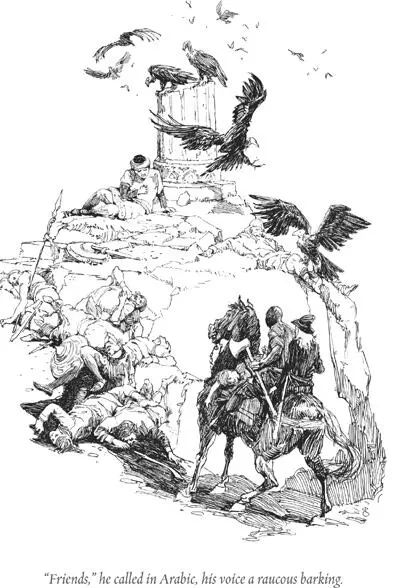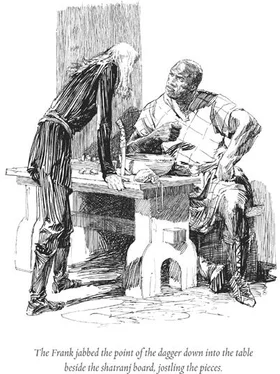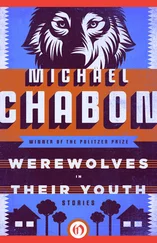Michael Chabon - Gentlemen of the Road
Здесь есть возможность читать онлайн «Michael Chabon - Gentlemen of the Road» весь текст электронной книги совершенно бесплатно (целиком полную версию без сокращений). В некоторых случаях можно слушать аудио, скачать через торрент в формате fb2 и присутствует краткое содержание. Жанр: Исторические приключения, на английском языке. Описание произведения, (предисловие) а так же отзывы посетителей доступны на портале библиотеки ЛибКат.
- Название:Gentlemen of the Road
- Автор:
- Жанр:
- Год:неизвестен
- ISBN:нет данных
- Рейтинг книги:3 / 5. Голосов: 1
-
Избранное:Добавить в избранное
- Отзывы:
-
Ваша оценка:
- 60
- 1
- 2
- 3
- 4
- 5
Gentlemen of the Road: краткое содержание, описание и аннотация
Предлагаем к чтению аннотацию, описание, краткое содержание или предисловие (зависит от того, что написал сам автор книги «Gentlemen of the Road»). Если вы не нашли необходимую информацию о книге — напишите в комментариях, мы постараемся отыскать её.
Gentlemen of the Road — читать онлайн бесплатно полную книгу (весь текст) целиком
Ниже представлен текст книги, разбитый по страницам. Система сохранения места последней прочитанной страницы, позволяет с удобством читать онлайн бесплатно книгу «Gentlemen of the Road», без необходимости каждый раз заново искать на чём Вы остановились. Поставьте закладку, и сможете в любой момент перейти на страницу, на которой закончили чтение.
Интервал:
Закладка:
The behavior of the second man was even more troubling, because as the Frank hobbled over to the ruined column where Hanukkah lay with his hand keeping his life in his body, he neither avoided nor ignored the sight of the carnage all around him but appeared actively to study it, stopping now and then to crouch beside a body and examine its situation and the nature of its wounds. At last he reached Hanukkah and regarded him with pale, almost colorless blue eyes that were shadowed by the wide brim of his black hat. Eyes as clear and cold as the doom they seemed inclined to pronounce on Hanukkah.

“Are you the angel of death?”
“Even worse, fatty,” the pale stranger said. “I'm the angel of fools.”
He held Hanukkah's right hand and tried to pull it from the sword wound. As cold as his gaze appeared, his touch and his manner had something reassuring about them, and Hanukkah made no effort to resist. But he had been clutching his belly for so long with such force that his elbow would not unbend, and his hand was cemented in place by congealed blood.
“Don't go anywhere,” the Frank said, and though it seemed impossible in this hostile place that fortune had chosen as the site of Hanukkah's death, he seemed to intend it as the sort of joke whose purpose was not to amuse, for there was nothing very amusing about it, but rather to reassure by suggesting that there remained to Hanukkah life enough to spare a little of it in polite pretending.
“You're a physician,” Hanukkah realized, and in answer the Frank stood up, went to the saddlebags where the giant had dropped them, brought out a large leather drawstring pouch and a roll of canvas tied with ribbon and carried them back among the dead men to his patient. He unrolled the canvas, revealing a number of small steel implements whose function Hanukkah preferred not to imagine, and then unknotted the leather thong of the pouch. In the meantime, the black giant had begun his own survey of the campground, where three nights earlier Hanukkah and his fellows had shared a roast goat and a looted cask of sharab, and some fool had made the mistake of removing the gag from the stripling's mouth to see if, plied with drink, he might say or do something amusing. The African paid heed not just to the corpses but also to the situation of trees, rock and roadway, the footprints in the dust, the position of the sun in the sky. Looking at him, Hanukkah could not imagine how a man could differ more from the pale, fair scarecrow, but when the African came to stand beside his partner his eyes held an identical certainty of knowing what little there was of interest to know about Hanukkah, a paltry fatal handful of facts.
“Open,” the Frank said. He held out a small pipe, the color of old bone, its bowl filled with a nasty-looking brown mixture, and when Hanukkah parted his cracked lips, the Frank struck a flint to the bowl of the pipe and encouraged Hanukkah to draw the thick, honeyed smoke into his lungs. Hanukkah coughed, and then drew again, and it was not long before he was aware of being filled, in rippling drizzles, by a stream of amber honey poured through his mouth and neck into the bottle of his soul. The scarecrow took hold of his arm again and slipped it from his belly like the loosened string of a robe.
When Hanukkah came to himself he was seated, slumped, on the back of his own horse, with a burning sensation in his midsection and his arms around the waist of the man who had saved his life and who was now engaged in an argument, in an unknown language, with the African on his spotted Parthian. The sun had dipped behind the slope of the mountain along whose eastern skirt ran the road that led, hugging the southeast littoral of the Khazar Sea, from Azerbaijan to Atil. The air was crisp, the light wistful and the smell of the Frankish physician abominable, and Hanukkah knew that he was going to live.
“Thank you,” he said, or tried to say, but his throat was raw and his lips half-sealed, and it did not emerge loud enough to interrupt the dispute between the African and the Frank. He said, in Arabic, “Thank you for finding my horse.”
The African left off making whatever irritated point he had been trying to score against the Frank, turned his great head toward Hanukkah and said: “Have you any objection to this fellow's taking it as payment for saving your life? Provided that we agree to convey you to water, food and a road home before we part ways?”
It was a reasonable and acceptable proposal, but there was a querulous note in the African's voice that made Hanukkah leery of agreeing too quickly
“I am not sure my life is so valuable,” he said. “But if the terms are agreeable to the learned gentleman. …”
“I don't want your old hack,” the Frank said, and the bones of his back stood out against the dusty black leather of his jerkin. “I want Hillel. And do not repeat, Amram, that a horse is a horse, because history, circumstances and I have disproved that argument many times.”
“The manhunters are two days ahead of us,” the African said. “They're heavily armed and bound for a kingdom in which we have no business, no friends. Apart from your freakish half-Arabian sweetheart, for whom you have now, thanks to the openhandedness of this good Khazar, found adequate replacement, I see nothing that we stand to gain from the pursuit of that boy”
“Our money,” the Frank said. “He has that too.”
“I'm afraid not,” Hanukkah said. “It was divided among the bastards who put me and the others to the sword, with the promise of more on the boy's safe return to Atil, and greater reward still on the restoration of his family to the bek's tripod. He has an older brother named Alp, who was sold by the usurper into slavery among the Rus and whose cause the stripling advanced, along with the contents of his, or rather of your, sack of gold.”
“The king of the great land of the Khazars rules with his ass slung in a tripod?”
“The bek is not our king,” Hanukkah said, trying to explain how alone among the civilized peoples of the earth the Khazars, in their wisdom, had discovered a means by which men might, profitably and without excessive peril to their souls, serve two masters. There was the bek, who directed the daily course of men's affairs, in the teeming streets of Atil, in the profane worlds of warfare and commerce, and over him-over all the Khazar people, embodying them and their interests and speaking on their behalf to God and all his angels-there was the kagan, in his palace on his sacred island in the middle of the river Atil, whose word was law and whose face was never seen.
“A kagan is the father, the mother and the lover of all his people. Nobody would lift a hand against him,” Hanukkah said. “But a bek has many enemies, and Buljan more than the usual. These enemies may have already begun to look for someone to oppose Buljan. I imagine that the boy Filaq, could easily find men to finance the ransom of Alp. After that it would be a matter of mustering soldiers, and I can tell you, for I've seen it with my own eyes, that this youth has a way with soldiers. He talked two-thirds of our number into betraying both our employer and the other third, among which, alas, I found myself”
“Because you so love the cause of Buljan?”
“No,” Hanukkah said. “I–I suppose it's only that I don't like changes in plan. I am slow to make up my mind.”
“Slow-witted.”
“If you like. But I obeyed an impulse in deciding to come along on this damned journey, and you see how that worked out.”
The Frank turned on his horse now and stared at Hanukkah for a long moment as they started up the last rise before the pass. When they crested it, they would see the first shimmer of the Khazar, or Caspian, Sea, whose chill waters were no colder than the eyes of the Frank as they made their diagnosis of Hanukkah's heart.
Читать дальшеИнтервал:
Закладка:
Похожие книги на «Gentlemen of the Road»
Представляем Вашему вниманию похожие книги на «Gentlemen of the Road» списком для выбора. Мы отобрали схожую по названию и смыслу литературу в надежде предоставить читателям больше вариантов отыскать новые, интересные, ещё непрочитанные произведения.
Обсуждение, отзывы о книге «Gentlemen of the Road» и просто собственные мнения читателей. Оставьте ваши комментарии, напишите, что Вы думаете о произведении, его смысле или главных героях. Укажите что конкретно понравилось, а что нет, и почему Вы так считаете.












